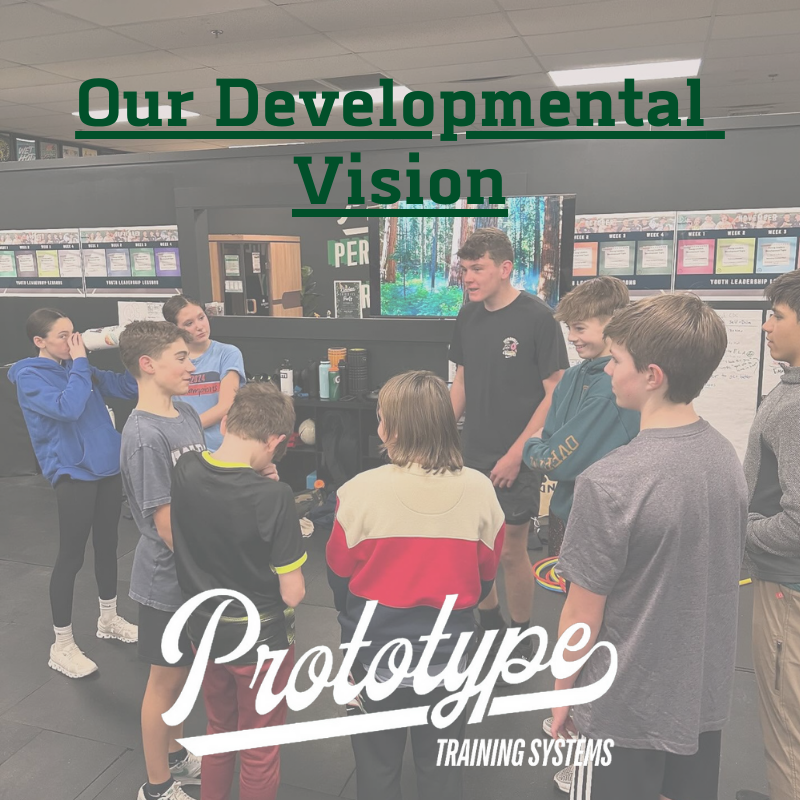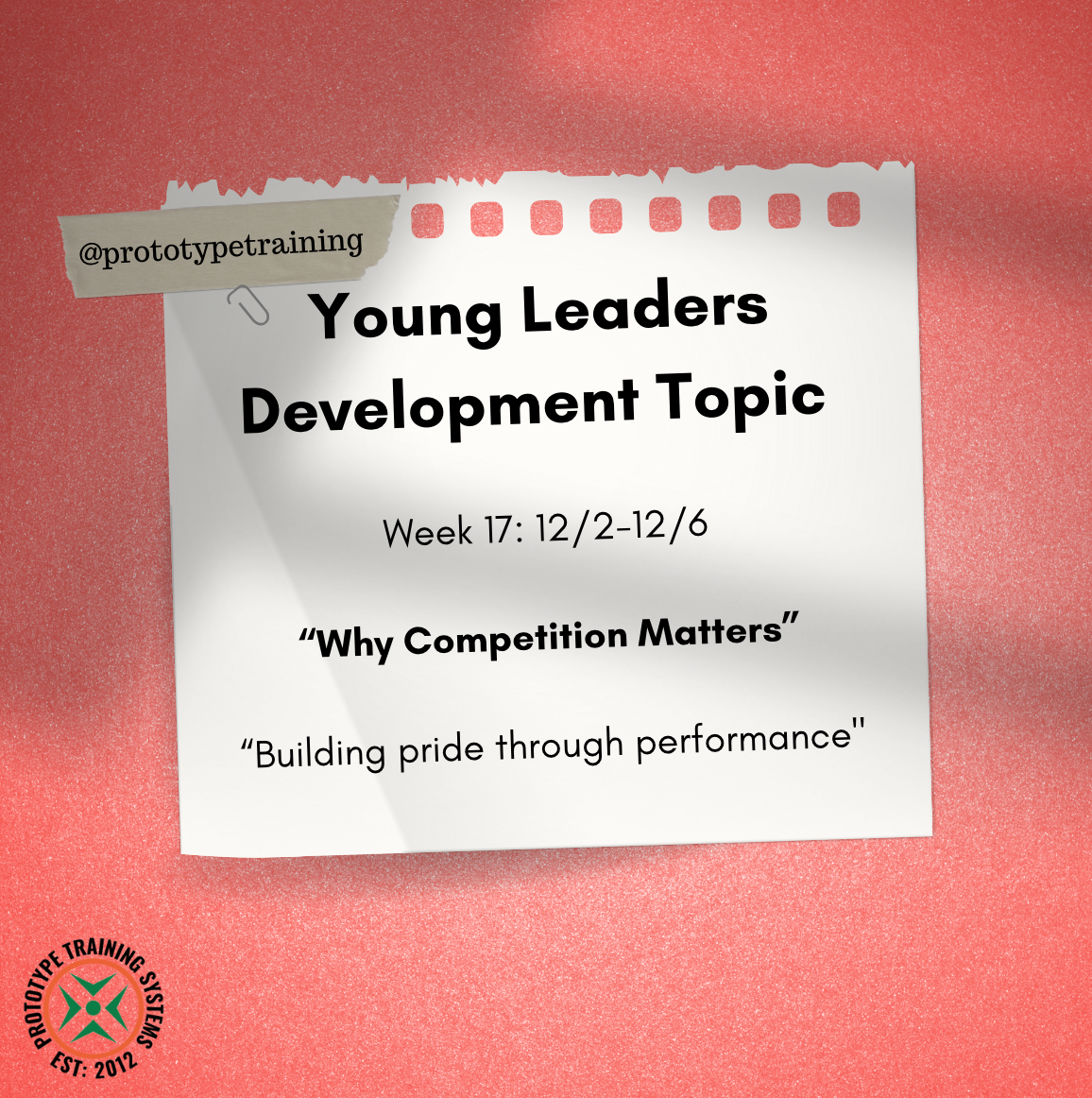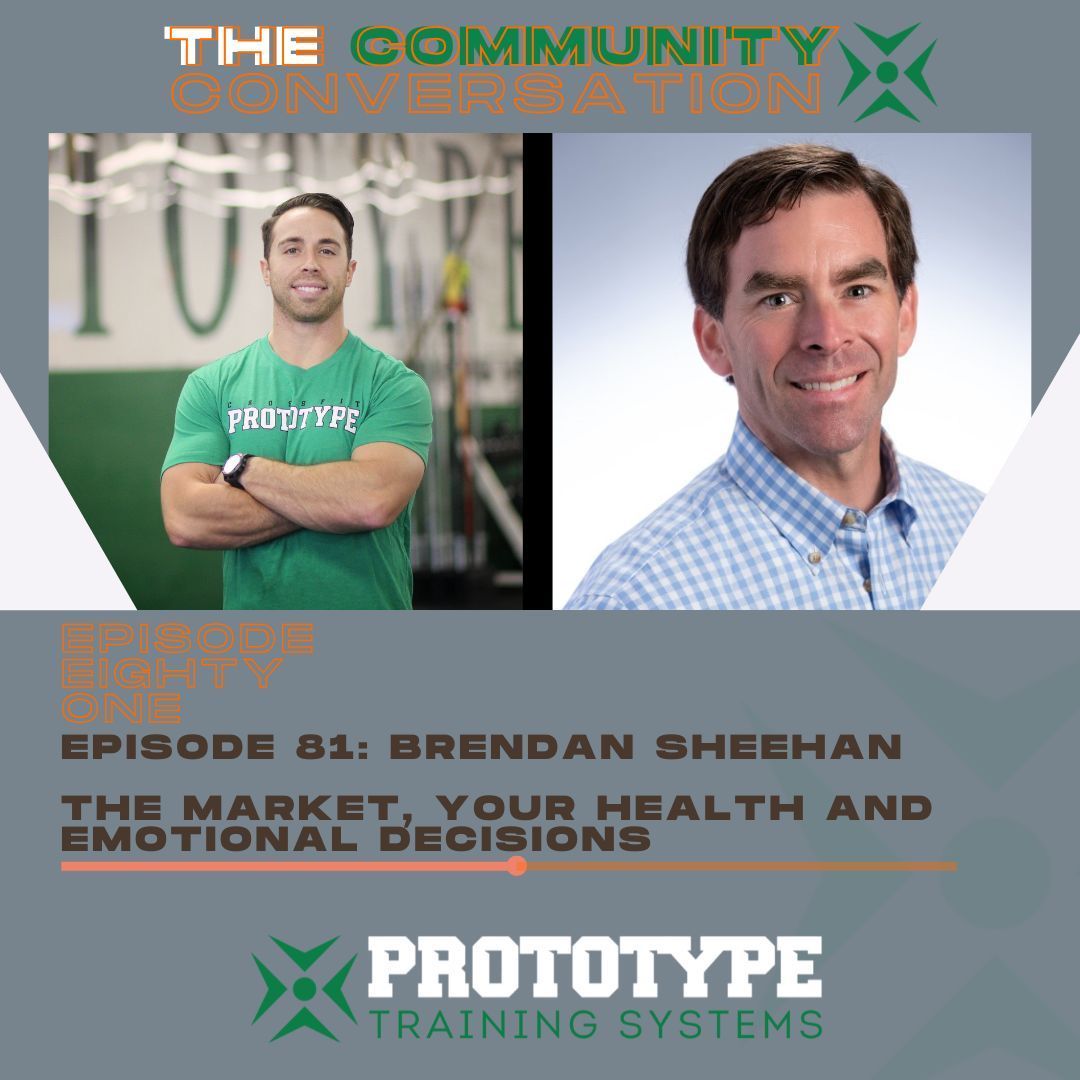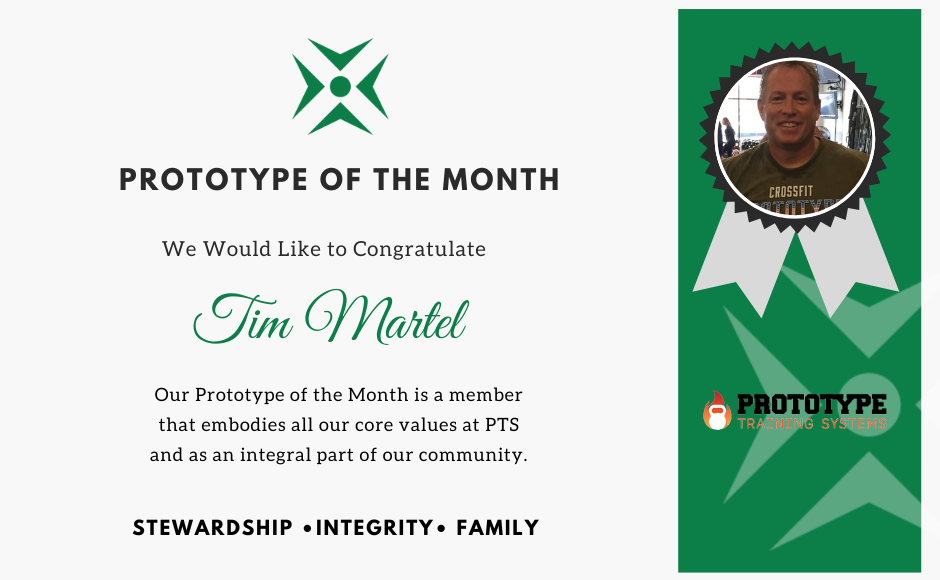Our Developmental Vision: The Future of Prototype Training Systems
Mike Collette • January 13, 2025
Our Developmental Vision: The Future of Prototype Training Systems

As we move into 2025, we’ve taken the time to reflect on 2024… the lessons learned, where we want to go and more importantly, the problems that we are seeing pop up all over the place.
BLUF: My vision for Prototype is to grow into a coaching community… Where adults are coaching adults, kids coaching kids, adults coaching kids and even kids coaching adults. Coaching to me in the new hospitality industry… it’s an essential part of our development and the skills transfer beyond your physical health.
In 2024, we ran several workshops in our Performance and Recovery Space… from a full day Wellness Academy where we talked about the problems and challenges we are seeing in health and wellness across the board, to a workshops on Youth Resiliency, Mental Fitness and many more.
Over the 13 years we’ve been in business, Prototype has evolved from a coaching and training facility that primarily focused on CrossFit to looking at Health and fitness across the 5 pillars (Physical fitness, Mental Fitness, Nutrition, Recovery and Community).
This past year we’ve put a big emphasis on the importance of Recovery, the mental side of fitness, Longevity (increasing the healthspan-lifespan gap) and have reignited a more inclusive kids program with the growth of our LTAD (long term athletic development) classes & our AAT (advanced athletic training) program that gives kids more autonomy to train and learn.
In other words, we’re evolving into more than just a facility that you can improve your physical health, but a delierate learning environment. As we’ve dug more into the problems around adults and kids on both the mental and physical health side, I’ve been thinking of how can we make a bigger impact and difference in people’s lives?
When I was growing up, my dad taught culinary arts at the high school level. When I was really young, I always thought that I may work in that field in some way. When I got to High School (like many kids i assume), my parents wanted me to get a job… not that school and sports wasn’t enough or anything 😀 but I also wanted to make my own money, so I got a job at a restaurant. At the time I remember my dad saying “everyone should work in the hospitality business at some point in their life”. I worked there for a year and a half before quitting and getting a job umpiring for little league baseball and refereeing for rec soccer games.
I’d be lying if I said I didn’t hate working at the restaurant… I worked in the back of the kitchen prepping food. I was the youngest person who worked there and when I got hired, I thought I’d be a host, but I guess I wasn’t the right fit for that role. But now that I’m older, I’ve given the same advice that everyone should work at some point in their life in the hospitality industry because of the transferable skills you develop. You learn how to work in a high pace and stressful environment, but on top of that you learn communication, you make a lot of mistakes and your judgement is tested.
Being in the health and coaching industry for the past 15+ years, my thinking has evolved a bit into this mindset that everyone should be a coach at some point in their life. Naturally as parents, we get put in this role. And like many parents we’ve interacted with, you may even be forced to “coach” your kids sports teams… even if you’ve never played that sport.
But when I think about coaching, I think about teaching and to me, teaching is the highest form of learning. There is a plethora of research out there on the oldest siblings being the “smartest” because of the disproportionate amount of opportunities to teach their younger siblings. In other words, the best way to learn something is to teach it… this may not be new for some of you reading this but it’s something we’ve been more deliberate about at Prototype than I would say most coaching and training facilities.
Where we are experimenting with this the MOST is through the leadership and development lessons with our LTAD and fundamentals programs. In 2024, we’ve implemented a weekly lesson that has built on each other each week. From coaching up the importance of getting outside your comfort zone to strategies to dial down anxiety and dial up creativity. In addition, what we see our youth programs continuing to iterate and evolve into, is a “training arena” where kids come to deliberately better themselves on and off the field.
What we’ve been continuing to experiment on is around this idea of proximal zone coaching, where older kids are learning to coach younger kids as part of their own skill development. As part of our close working relationship with the TOP leadership and development company (Next Jump), their 20 years of experience learning the best of the best and breaking down elite teams, they’ve been able to boil down these 4 Core Metrics, which are:
1/ Self Awareness
2/ Speaking up
3/ Peer Sharpening
4/ High Expectations
We’re aware that the majority of the kids in our programs play a sport or multiple sports. We look at what we do at Prototype is only additive. But we are also realistic in the sense that the majority of kids will discontinue sports before they finish high school, and a far greater amount of kids will end their athletic career once they get to the next level of education (or post high school). What we want to do is develop a system for upgrading kids. To help them dial down anxiety and dial up confidence. Help them develop the transferable skills that apply to being a better student, a better son/daugher, a better employee, a better leader.
This is our mission at Prototype and we are excited to continue to chip away at this in 2025. To end, I want to share a really cool text we received from one of the parents who’s son is in one of our youth programs…
“Mateusz led a 30 minute soccer class this morning before school started with the english language learns in the 4th and 6th grade. He is working SO HARD in all aspects of his life. And he keps raising the bar. I feel like taking on leadership roles and building confidnece has all been part of the last couple of months. I think part of it is Prototype and how being a leader there and seeing how you coaches work and talk with the kids…”
-Mike Collette
CEO/Founder of Prototype Training Systems
Previous Blogs

Yesterday was a great reminder of what a little friendly competition can do. We set up a simple 1-v-1 game: kids had to sprint, tap two cones, and race back to knock over a foam roller. Nothing fancy, just movement, focus, and a clear goal. But something cool happened. The second it became head-to-head, the energy shifted. Kids were locked in. They ran harder. They pushed themselves—not because they were told to, but because someone else was giving it their all too. Even the kids watching got invested—shouting encouragement, clapping for effort, reacting to every close finish. That sense of shared experience, of community rooted in challenge, is exactly what youth development should be about. It was a perfect example of how competition, even in its simplest form, can bring out motivation and effort . Not for a prize, but just for the challenge of it. More Than a Game: The Real Value of Friendly Competition In today’s world of participation medals and well-meaning “everyone wins” culture, it’s easy to misunderstand the role of competition. But when designed thoughtfully and guided with intention, competition doesn’t diminish self-worth—it enhances it. According to a 2019 study published in Frontiers in Psychology, structured competition can lead to higher intrinsic motivation, improved self-esteem, and a greater sense of personal accomplishment in youth participants (Bonfiglio et al., 2019). When kids compete, they learn that effort yields results. They learn how to win graciously—and perhaps more importantly—how to lose with resilience. They discover the value of hard work, discipline, and focus. They get to ask: “How fast can I be?” “How far can I push myself?” And, “What happens if I try just a little harder?” The Pride in Performance There’s a moment—right after a child finishes a race, or a round of a competitive game—where they catch their breath, stand a little taller, and smile. Whether they won or not is almost secondary. What matters is that they showed up and gave their best effort. That sense of pride? That’s not vanity. It’s the birth of confidence. And when that confidence is built through movement, through play, through sweating and trying and doing—it sticks. Not just in sport, but in school, at home, in friendships, and beyond. Final Thoughts Competition, when framed the right way, helps kids build confidence, stay motivated, and take pride in their effort. It’s not about winning — it’s about showing up, trying hard, and learning what they’re capable of. At its best, competition doesn’t separate kids — it brings them together, showing them how to push themselves while supporting each other along the way.

It’s no secret — we’re living in a world that feels increasingly volatile. Financial markets are unpredictable. The news cycle is overwhelming, social media noise is constant and it's harder and harder to sort through what's real and what's not. And when uncertainty rises, it's human nature for people to start making emotional decisions. Being in the fitness industry for close to 20 years and operating Prototype Training Systems since 2012, I've seen this happen time and time again — not just in the stock market — but in our gym community. When we feel stressed financially (and trust me, i've been there as an entrepreneur), one of the first things they often cut is their investment in their health. Cancelling the gym. Skipping workouts. Pressing pause on coaching or training. We can go into a frenzy of what needs to be prioritized and what doesn't, and often it's rooted in anxiety and fear. On the surface, it makes sense: "Let me tighten up my budget until things feel safer." But here’s the truth — it’s completely backwards . Emotional Decisions Rarely Lead to Positive Outcomes In a recent conversation I had with Brendan Sheehan, founder of Waymark Wealth Management (and one of our community business sponsors), we talked about this exact thing. As we are facing that uncertainty now in the market. Click the link to listen to the full podcast! Brendan was sharing when the market drops — whether it’s 5%, 10%, or more — people panic. But the data shows this happens all the time. He shared that "the m arket dips of 5-10% happens three times a year on average." Dips of 10-20%? Happens at least once a year. It’s not unusual — but when emotions take over, we make decisions that can hurt long-term. And this same pattern can show up in health and fitness. Your Health is Not a Luxury — It’s Essential Let’s be real — when life feels hard, stressful, or uncertain, you need your health more than ever. Exercise isn't just about aesthetics or performance — it's your anchor. Working out helps you regulate stress, sleep better, stay clear-headed, and avoid the emotional roller coaster that uncertainty brings. Cutting your health investments when things get tough is like saying: "The storm is coming... so I'm going to throw away my umbrella." It doesn’t make sense, but this what happens when emotions are high, it's REALLY hard to make logical decisions. We can get into a binary mode of thinking... then we take action which often isn't fully thought out. The Vicious Cycle: Stress → Cut Health → Decline → Regret Here's the common pattern we’ve seen over the years... and I would argue is common in every gym across the country... Things get tough financially or emotionally. We go into "panic" mode... start to take action. People cut their gym membership or stop exercising. Maybe you over narrate it's not worth it... maybe you over narrate I'll just do it on my own and change my entire routine... or maybe you think it will only be very short term. Then, stress increases. Energy drops. Sleep gets worse. Health declines — physically and mentally. Time passes... regret kicks in. "I wish I hadn't stopped. Now it’s even harder to get back ." Sound familiar? It's a vicious cycle and REALLY hard to break. We’ve seen it over and over — and we’ve helped people climb back out of it. But we’d rather help you avoid that spiral in the first place. What Should You Do Instead? Have faith in your routine and take a second to pause before making a major life change. Double down on habits that ground you — like fitness, community, and nutrition. Talk to a coach. Share what’s stressing you out — we’re here to help. Be curious — ask questions before making big decisions. Remember: health is not the problem — it’s the solution. Final Thought: Uncertainty will always be part of life. Markets go up and down. Challenges will come and go. But the best investment you can make — in any economy — is in your physical and mental well-being. At Prototype Training Systems, we’re more than a gym. We’re a community that helps people stay grounded, consistent, and healthy — no matter what’s happening outside our walls. If you’re feeling the pull to cut your health in hard times — let’s talk. Book a Free Goal Review Session with a coach... seriously, we're here to help. We’ll help you navigate uncertainty the right way — by staying strong, staying consistent, and investing in yourself.

1.) Share your experience: I've been coming to prototype for many years , since the kids were little ! They all took kids classes and caught the bug ,,,, still working out today. My daughter Allie is in high school and has recently returned to prototype and loving it ! 2) What’s your favor part of Prototype: Seeing the people working hard to get heathy. I enjoy the competition and that we all push each other to get better. I feel that everyone is really genuine at prototype. 3)What are your hobbies and activities: I consider Prototype my hobbies/activity. When not working out i do enjoy fishing/golfing and spending time with family. 4) How has prototype helped you solve a problem: I believe prototype keeps me healthy and sharp. This gives me the ability to be the best on any challenge. 5) What are you continuing fitness goals: To stay strong and health as long as possible. 6) What's your favor quote: Coach Brian - Positive attitude/mindset!!! Let's goooo See the short interview with Tim below on our Instagram page! Click the link below!
Climb to New Heights
Prototype Training Systems is more than a gym - it is a lifestyle. Join us today!

